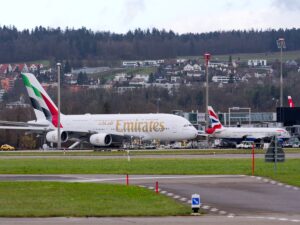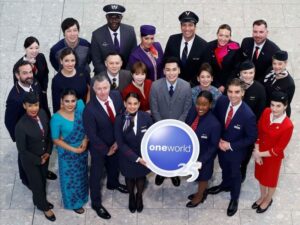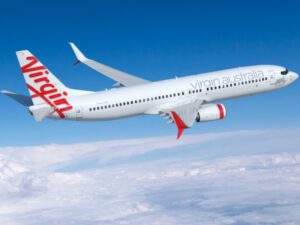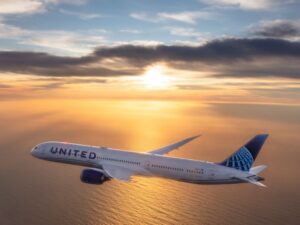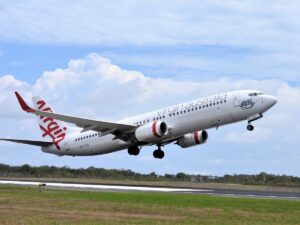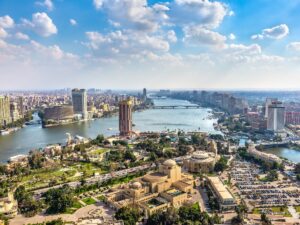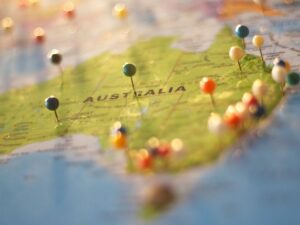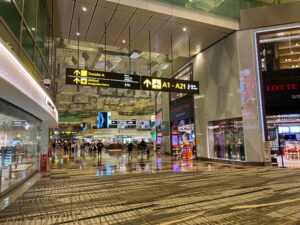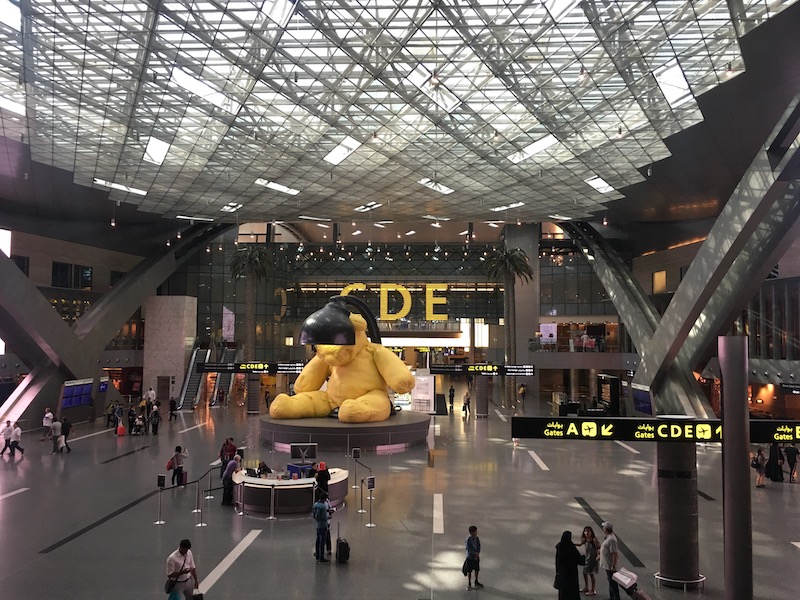
Australia no longer requires international arrivals to get a pre-departure COVID-19 test. But many other countries still have their own travel requirements which may including COVID-19 testing, even if you are just in international transit. To make matters even more complicated, a few countries still aren’t allowing international transits at all.
International travel in June 2022 is getting easier that it was even just a few months ago, and it’s possible to travel now to most other countries. Many countries have progressively relaxed their COVID-19 transit restrictions in recent months. But before travelling overseas, you’ll still need to check the entry requirements for your destination!
If you’re transiting via another country en-route to your final destination, you’ll also need to make sure that country is allowing international transits and that you meet any requirements! For example, you may need a COVID-19 test or even travel insurance to be allowed to transit via certain airports.
Keep in mind that a country’s COVID-19 entry requirements may be very different to its rules for international transits. In addition, the rules in place today could change. So, you’ll need to keep checking regularly prior to your departure date.
Where you transit could also impact your ability to enter your final destination. Some countries have different entry requirements based on where you have been during the past 10-14 days. Any countries where you’ve transited may also be counted as part of your travel history.
If you stop over in another country (i.e. you’re staying for more than 24 hours and/or leave the airport), this would generally require you to enter the country. In this case, you would be subject to that country’s entry requirements rather than just the international transit requirements. Some countries may even require arriving passengers to quarantine.
If you’re required to get a COVID-19 test to enter your destination anyway, then transiting via a country that also requires a COVID-19 test for transits should not be an added imposition. You’d just have to ensure that the time you get your COVID-19 test is within the cut-off time for both your transit country and final destination.
But if you’re travelling somewhere like the UK that does not require a pre-departure test when travelling from Australia, then transiting via somewhere like Taipei where a pre-flight test is required will result in added cost and time. So it’s really important to check this before booking – and choose your airline & routing accordingly!
Contents
Where to find international COVID-19 transit & entry rules
You can generally find up-to-date information about international COVID-19 travel restrictions on official government websites for each country. But if you don’t have time to search on lots of different government websites, there are some other resources that could be handy.
Timatic typically has the most up-to-date information. This is the system often used by airline check-in staff when ensuring you’re eligible to fly to your destination.
If you have an Expert Flyer account, you can use the Travel Information Search feature to find Visa, Health & Passport information for any itinerary. For example, these were the rules for transits via Thailand as of 20 June 2022:
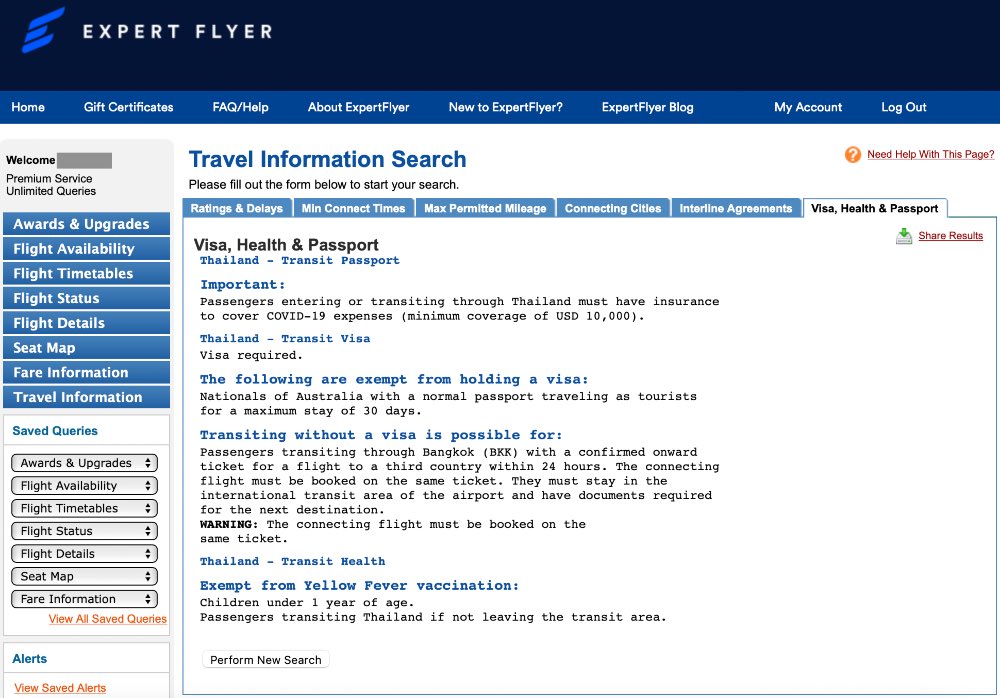
(Don’t forget that AFF GOLD supporters can get a 15% discount off Expert Flyer subscriptions.)
You can also use the IATA website to check Timatic visa, transit & entry requirement information, although they only make the demo version of this tool available for free to the public.
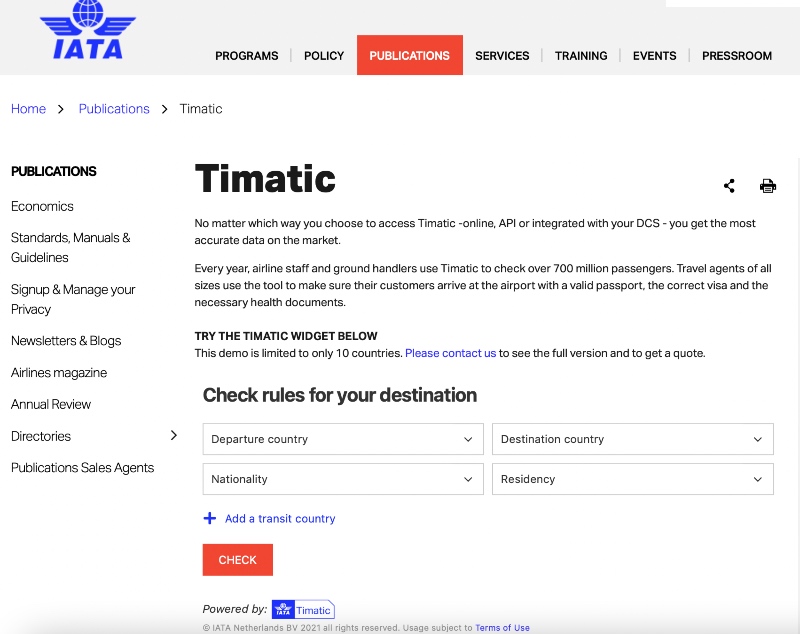
The IATA TravelCentre also maintains a COVID-19 travel regulations map, which is powered by Timatic.
Many airline websites provide access to up-to-date entry & transit requirements, including the Singapore Airlines website. (This isn’t surprising because it’s in the airlines’ best interest for their customers to be well-informed about where they are allowed to fly!)
Another handy free tool is the Sherpa website. As well as a colour-coded map showing entry restrictions applying to travel from any country, you can check international COVID-19 transit & entry rules and filter the results by passport and vaccination status. This tool is great because it’s easy to use, the information is easy to understand and it provides links to official websites where the information was sourced from.
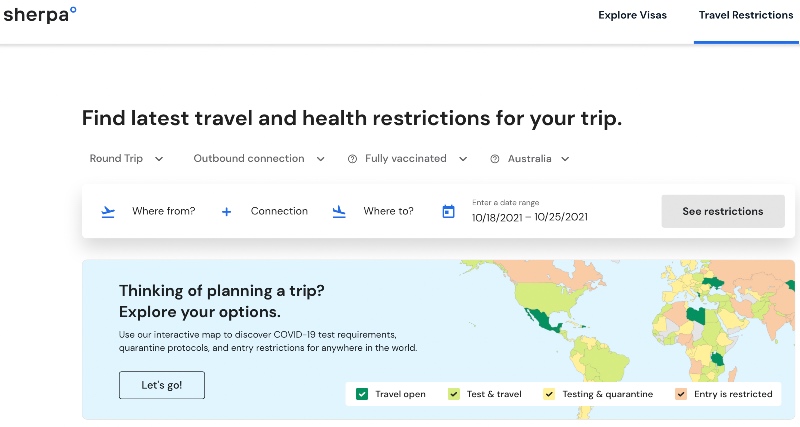
International COVID-19 transit requirements for key aviation hubs
Before booking international travel, check the current COVID-19 transit & entry requirements applicable to your itinerary.
These are subject to change but to give you an idea of the current rules, here’s a summary of the requirements for international transits via major international hub airports. Note that some countries may have additional restrictions for transit passengers who are unvaccinated. This was last updated on 20 June 2022:
Abu Dhabi (UAE)
International transits are allowed with the following conditions:
- Maximum transit time is 24 hours if flying with Etihad, or 12 hours with other airlines
Note that the transit requirements for Abu Dhabi may be different to Dubai, which is also in the United Arab Emirates.
For more information: https://www.etihad.com/en-ae/travel-updates/abu-dhabi-travel-information
Auckland (New Zealand)
International transits are allowed with the following conditions:
- International transits only allowed via Auckland, with a maximum transit time of 24 hours
- There are restrictions on transiting via New Zealand to China
For more information: https://covid19.govt.nz/travel/international-travel-and-transit/transit-through-new-zealand/
Bangkok (Thailand)
International transits are allowed with the following conditions:
- Must have COVID-19 travel insurance with at least USD10,000 coverage for medical expenses in Thailand
- The onward flight from Bangkok (BKK) must depart within 24 hours of arriving and be on the same ticket (note that if transiting through Phuket, the maximum transit time is 8 hours)
For more information: https://www.caat.or.th/en/archives/56377
Bandar Seri Begawan (Brunei)
International transits are allowed with the following conditions:
- Must be fully vaccinated with an approved COVID-19 vaccine within last 3 months, or with a booster dose
- Must have a ticket for an onward flight within 24 hours and stay in the international transit area
For more information: https://www.bruneitourism.com/covid19-travellers-advisory/
Delhi (India)
International transits are allowed with the following conditions:
- Maximum transit time of 24 hours and must stay in international transit area
Denpasar (Indonesia)
International transits are allowed with the following conditions:
- Onward flight to a third country must depart from the same terminal within 8 hours
- Note that overnight transits are not possible as the international transit area at DPS is closed between 2-7am
Please note that the transit requires in Denpasar (Bali) may be different to those of Jakarta, which is also in Indonesia.
Doha (Qatar)
International transits are allowed with the following conditions:
- Maximum transit time of 24 hours
Dubai (UAE)
International transits are allowed with the following conditions:
- Maximum transit time of 24 hours
Note that the transit requirements for Dubai may be different to Abu Dhabi, which is also in the United Arab Emirates.
For more information: https://u.ae/en/information-and-services/justice-safety-and-the-law/handling-the-covid-19-outbreak/travelling-amid-covid-19/travelling-to-the-uae
Frankfurt (Germany)
International transits are allowed.
For more information: https://www.bmi.bund.de/SharedDocs/faqs/EN/topics/civil-protection/coronavirus/coronavirus-faqs.html
Most other EU Schengen Area countries are also allowing international transits, although some countries may require you to complete a form or show a negative COVID-19 test result if you don’t have a COVID-19 vaccination certificate recognised by the European Union.
Ho Chi Minh City (Vietnam)
International transits are allowed with a confirmed onward ticket to a third country. (Vietnam is also now allowing international transits in Hanoi, but not in other airports.)
For more information: https://vietnam.travel/things-to-do/information-travellers-novel-coronavirus-vietnam
Hong Kong (Hong Kong SAR)
International transits are allowed with the following conditions:
- You must have a connecting flight via Hong Kong on the same ticket within 24 hours, with boarding passes already issued and baggage checked through to the final destination
- May not transit via Hong Kong to mainland China
For more information: https://www.coronavirus.gov.hk/eng/inbound-travel.html
Istanbul (Turkey)
International transits are allowed.
Note that you would need to enter Turkey to transit between Istanbul Airport (IST) and Sabiha Gökçen Airport (SAW).
Jakarta (Indonesia)
International transits are allowed with the following conditions:
- Must have a confirmed onward flight within 6 hours
Please note that the transit requires in Jakarta (CGK) may be different to those of the airport in Denpasar/Bali (DPS), which is also in Indonesia.
Johannesburg (South Africa)
International transits are allowed with the following conditions:
- You may be required to take a COVID-19 test on arrival (and quarantine in South Africa if the result is positive) if you do not have proof of full COVID-19 vaccination, a negative COVID-19 PCR test taken within 72 hours before departure or a RAT taken within 48 hours before departure from the first embarkation point
Kuala Lumpur (Malaysia)
International transits are allowed with the following conditions:
- Must arrive and depart from the same terminal (i.e. cannot transit from KLIA to KLIA2)
Los Angeles (USA)
The United States does not have international transit facilities. You would need to enter the USA in order to connect to an onward flight, and would therefore be subject to the usual entry rules.
When arriving in the USA from Australia, you would need to show proof of COVID-19 vaccination. Note that an ESTA (U.S. visa waiver) or US visa is also required.
For more information: https://www.cdc.gov/coronavirus/2019-ncov/travelers/from-other-countries.html
London Heathrow (UK)
International transits are allowed with no restrictions.
For more information: https://www.gov.uk/guidance/travel-to-england-from-another-country-during-coronavirus-covid-19
Manila (Philippines)
International transits are allowed with the following conditions:
- Can only transit between Terminals 1 and 2, or within terminal 3
- The connecting flight must be within 24 hours
For more information: https://www.philippineairlines.com/en/ph/Home/TravelInformation/BeforeYouFly/AtTheAirport/ConnectingFlights
Nadi (Fiji)
International transits are allowed with the following conditions:
- Must be fully vaccinated against COVID-19
- Maximum transit time of 10 hours (if your transit is longer than this, you’ll need to wait for your connecting flight in a managed quarantine hotel)
For more information: https://www.mcttt.gov.fj/home/traveltofiji/international-travel/#transs
Santiago (Chile)
International transits of up to 8 hours are allowed. You must stay within the international transit area of the airport.
Shanghai (China)
International transits via China are not currently allowed.
Singapore Changi (Singapore)
International transits are allowed via Singapore with no specific COVID-19 restrictions.
Singapore dropped the requirement for transit passengers to get a pre-departure COVID-19 test in February 2022, and the VTL scheme ended on 1 April 2022.
For more information: https://safetravel.ica.gov.sg/transit/overview
Sydney (Australia)
International transits of up to 72 hours are allowed. All passengers must complete a Digital Passenger Declaration (DPD) within 7 days prior to flying to Australia.
For more information: https://www.homeaffairs.gov.au/covid19/vaccinated-travellers/temporary-visa-holders/entering-transiting-australia
Taipei (Taiwan)
International transits are allowed with the following conditions:
- The onward flight must be on the same ticket, depart within 12 hours and be on the same calendar day
- May not transit to/from mainland China
- Must have an approved pre-departure COVID-19 test taken within 2 calendar days before departure to Taiwan
Tokyo Haneda (Japan)
International transits are allowed with the following conditions:
- The onward flight must be on the same calendar day, or within 72 hours if transiting via Haneda (HND) or Osaka (KIX) airports
Please note that you cannot transfer between Haneda & Narita airports as this would require you to enter Japan.
For more information: https://www.mofa.go.jp/ca/fna/page4e_001053.html
Vancouver (Canada)
International transits at selected Canadian airports including Vancouver are allowed with the following conditions:
- An Electronic Travel Authorization (eTA) is required if you are from a visa-waiver country such as Australia (otherwise, you’ll need a transit visa)
For more information: https://travel.gc.ca/travel-covid/travel-restrictions/border
You can leave a comment or discuss this topic on the Australian Frequent Flyer forum.
